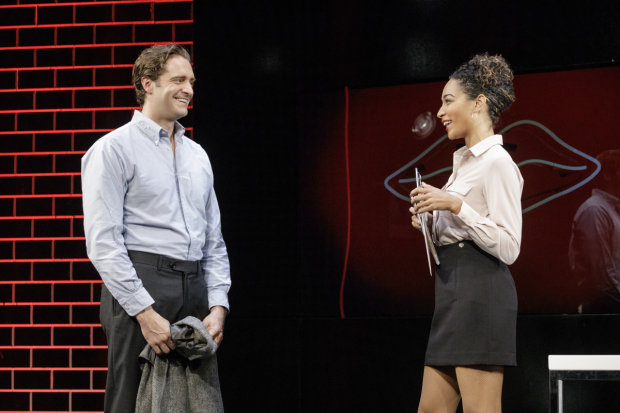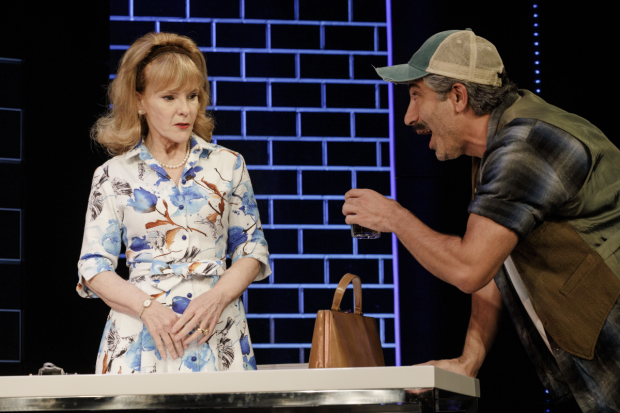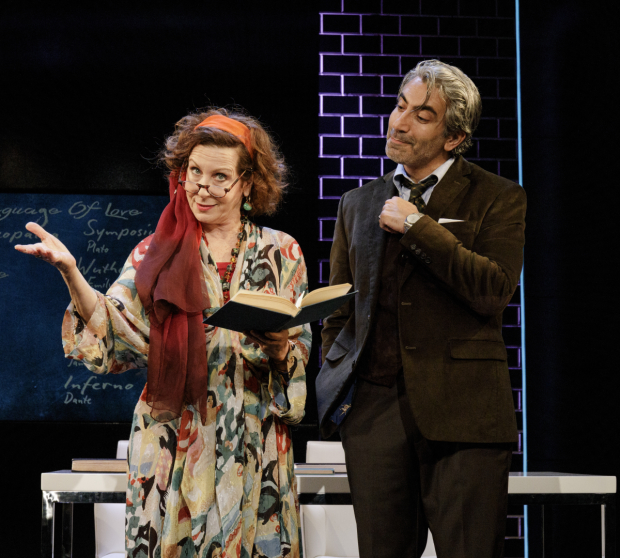Final Follies Brings a Trio of A.R. Gurney One-Acts to Primary Stages
”Final Follies”, ”The Rape of Bunny Stuntz”, and ”The Love Course” make up the off-Broadway program.

(© James Leynse)
Primary Stages opens its season with a tribute to the late A.R. Gurney — a playwright famous for turning his experiences at the heart of American WASP culture into a prolific body of work. Final Follies, now running at the Cherry Lane Theatre with direction by David Saint, comprises three of Gurney's one-act plays on the subject, and is served like a loosely themed sampler platter intended to add up to a meal. In terms of both quantity and quality of the performances, the evening is a perfectly satiating experience. Mustering an appetite for this kind of menu, however, is another matter.
Whether misfortune or miscalculation on the part of Primary Stages, Final Follies is being presented at a moment in which it feels like we're all a little less willing to lightheartedly chuckle at someone like Nelson (Colin Hanlon), the protagonist of the title one-act that opens the program. Nelson, a 40-something white man, walks into the office of Tanisha (Rachel Nicks), a 30-something black woman, hoping she'll hand him his next high-paying career as an adult-film star . Aside from a few school plays, his résumé is limited to a stint as a substitute English teacher at a swanky Manhattan private school, six months in law school, and a briefly held title as associate vice president of a bank. All of which were handed to him by his wealthy grandfather.
Gurney of course is poking fun at Nelson's world of privilege — satirizing debutante balls, yachts, family allowances, and the stereotypical pastime of skiing. It's the accompanying air of wistfulness, however, that leaves a sour taste. "You know what we're really talking about here," says Nelson, both campaigning and flirting with Tanisha. "The waning of WASP culture." There's a crumb of authentic nostalgia in there, but in light of current (and not so current) events, it all resonates with the bitter sound of the William Finn lyric, "I'm tired of all the happy men who rule the world."

(© James Leynse)
The Rape of Bunny Stuntz paints a slightly darker picture of the white, upper-middle-class lifestyle, following an unhappy woman who decidedly does not rule the world (Deborah Rush plays the title character with unnerving levels of forced delight inside a 1960s housedress by costume designer David Murin and flip hairdo). She bleeds the silent desperation of a housewife as she robotically leads a community meeting while searching for the missing key to a lock box. "Everything's in here," she says. "The minutes from last week, the agenda for this week, the mailing list, the money — everything." Alas, the meeting can't continue without the key, and the mystery of where it's gone to and how a strange man (who remains unseen and unheard) might be indecently involved becomes the crux of the story. Meanwhile, we're told, a raucous party is breaking out downstairs (Betsy Aidem and Piter Marek pop on with comic interjections about the debauchery), and Bunny is missing it to cling to her self-appointed duties. Rush gives an excellent performance in a piece that is tantamount to an extended stand-and-deliver monologue (made more eerie by Cory Pattak's lighting), but as she talks herself from point A to very nearby point B, the audience gets a little too much FOMO for the offstage revelry.
The Love Course is by far the most entertaining of the three pieces, and as such, fittingly closes out the trio of plays. Aidem and Marek reappear as Professor Carroway and Professor Burgess, the tag-team instructors of a college course on the literature of love. Emily Brontë, Plato, Gustave Flaubert, and more authors of the world's most tragic romances (a book list projected on a screen that serves as the centerpiece for James Youmans's all-purpose set) have gotten under their skin. Consequently, the married Professor Burgess (a salt-and-pepper haired intellectual) has decided to leave the last class to Professor Carroway (a wild-eyed, kimono-robed hippie) before things get too frisky. In attendance at this final lecture are the starry-eyed student Sally (Nicks) and her acquiescent boyfriend Mike (Hanlon, proving himself a master of the dumbfounded blank stare), whom she drags to class to pick up a few pointers in romance. Some incisive thoughts on love and its need to be tragically adulterous are mixed into a genuinely funny reenactment of Wuthering Heights. And yet, as Gurney's final word in Final Follies, you can't help but wish The Love Course, along with the rest of the fare, were slightly meatier.

(© James Leynse)







